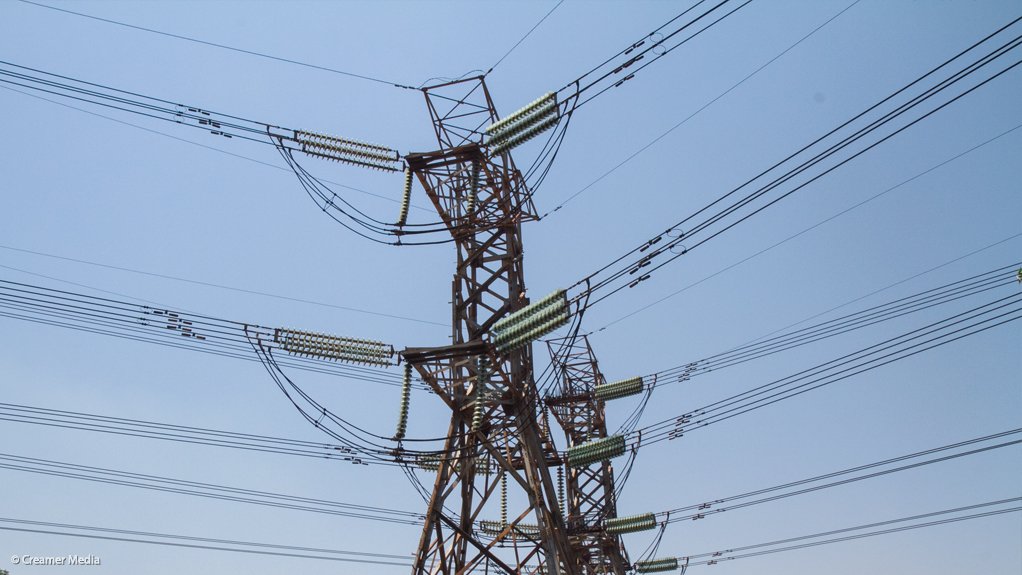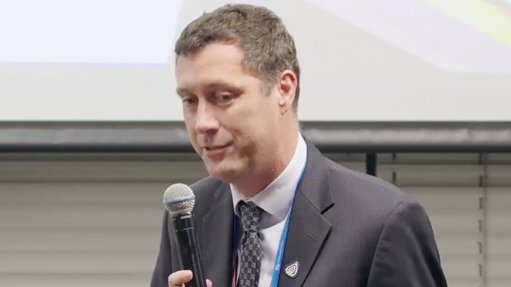Eskom making virtual wheeling strides but says national framework still required
Eskom reports that it has made material advances in developing what it calls a ‘virtual wheeling product’ that will allow one or more generators to transact with multiple offtakers, including those supplied by municipal distributors.
However, the utility insists that a national wheeling framework is still urgently required so as to standardise the calculation of wheeling charges across all of South Africa’s distributors, with such charges currently varying significantly from distributor to distributor.
Eskom senior adviser for electricity pricing Onicah Rantwane also reports that, while the virtual wheeling proof of concept is well advanced, further development work is being undertaken to refine the solution ahead of implementation, for which there is no firm date.
She also notes that the product is heavily reliant on the deployment of meters that are able to provide time-of-use readings, as well as the associated information communication technology systems needed to collect and process that data.
In addition, it would be helpful if cost-of-supply studies could be completed across the distribution sector so as to ensure use-of-system charges are calculated using a more standard formula to make them both fair and affordable.
Speaking during a webinar hosted by EE Business Intelligence, Rantwane reported that the virtual wheeling model had been designed to integrate with existing Eskom and municipal billing systems, as well as for revenue neutrality.
It also differs markedly from the prevailing wheeling system, which is mostly confined to bilateral agreements between an individual generator and offtaker, by catering for multiple generators and offtakers, with accounts settled by way of a consolidated “refund” rather than through individual credits.
Under the model, information will be aggregated by the buyer – which could be a corporate, a trader, or an aggregator – and a single refund for the wheeled portion of the electricity consumed by the various individual customers will be paid to the buyer.
The model is anticipated to be attractive to companies such as retailers with multiple stores in various locations that have power purchase agreements with several renewables generators that are wheeling electricity through the grid.
The buyer, which could be the company itself or a trader, will aggregate the generator and customer data through a buyer platform, which will interface with an Eskom aggregation platform to reconcile the data so that the refund can be calculated and settled. The settlement is based on Eskom’s avoided purchase cost.
The buyer will then allocate the wheeled energy credit to the individual customers, which means refunds will be paid on an aggregated basis rather than against individual bills.
“The basis for the refund is that the individual customer will be paying the full bill, including the energy purchase from Eskom and the wheeled energy.
“Eskom has, therefore, overcharged the individual accounts and therefore a refund is due,” Rantwane explained.
The concept does not depend on amendments to the electricity supply agreements, including with municipalities, as no credits are provided to the municipality and municipal revenue is also unaffected.
However, the creditworthiness of municipalities, many of which owe Eskom outstanding debts, could limit deployment in certain areas.
“Eskom will have to receive payment before we can refund the buyer or the trader. [If] we haven't received the payment from municipalities for that month, we will not effect the wheeling refund,” Rantwane confirmed.
Article Enquiry
Email Article
Save Article
Feedback
To advertise email advertising@creamermedia.co.za or click here
Announcements
What's On
Subscribe to improve your user experience...
Option 1 (equivalent of R125 a month):
Receive a weekly copy of Creamer Media's Engineering News & Mining Weekly magazine
(print copy for those in South Africa and e-magazine for those outside of South Africa)
Receive daily email newsletters
Access to full search results
Access archive of magazine back copies
Access to Projects in Progress
Access to ONE Research Report of your choice in PDF format
Option 2 (equivalent of R375 a month):
All benefits from Option 1
PLUS
Access to Creamer Media's Research Channel Africa for ALL Research Reports, in PDF format, on various industrial and mining sectors
including Electricity; Water; Energy Transition; Hydrogen; Roads, Rail and Ports; Coal; Gold; Platinum; Battery Metals; etc.
Already a subscriber?
Forgotten your password?
Receive weekly copy of Creamer Media's Engineering News & Mining Weekly magazine (print copy for those in South Africa and e-magazine for those outside of South Africa)
➕
Recieve daily email newsletters
➕
Access to full search results
➕
Access archive of magazine back copies
➕
Access to Projects in Progress
➕
Access to ONE Research Report of your choice in PDF format
RESEARCH CHANNEL AFRICA
R4500 (equivalent of R375 a month)
SUBSCRIBEAll benefits from Option 1
➕
Access to Creamer Media's Research Channel Africa for ALL Research Reports on various industrial and mining sectors, in PDF format, including on:
Electricity
➕
Water
➕
Energy Transition
➕
Hydrogen
➕
Roads, Rail and Ports
➕
Coal
➕
Gold
➕
Platinum
➕
Battery Metals
➕
etc.
Receive all benefits from Option 1 or Option 2 delivered to numerous people at your company
➕
Multiple User names and Passwords for simultaneous log-ins
➕
Intranet integration access to all in your organisation




















